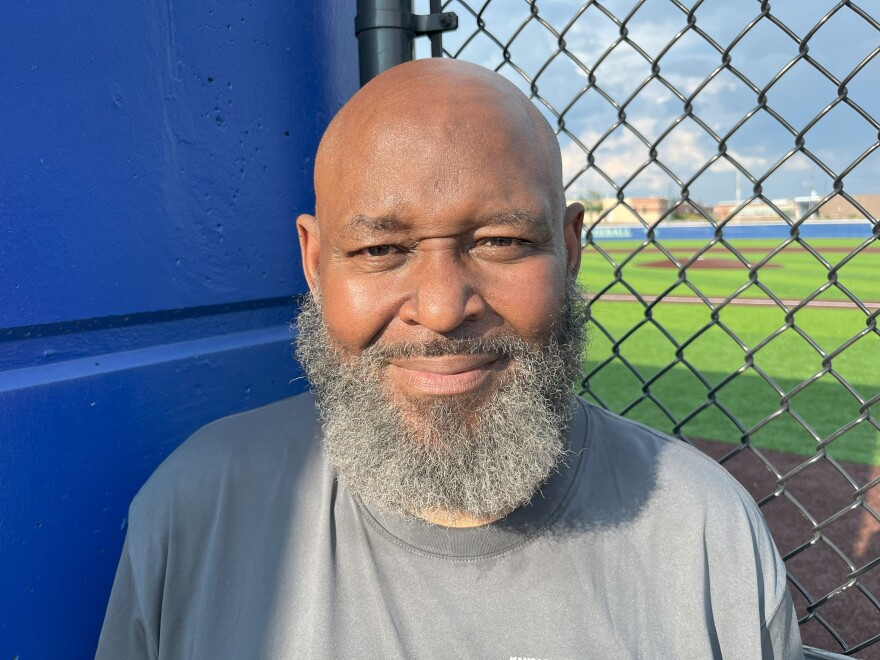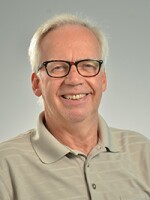At a time when the Kansas City Royals are drumming up support for a new downtown ballpark, trust among many urban residents is shaky because of another baseball facility close to downtown — the Urban Youth Academy.
Many people in nearby neighborhoods believe the Academy has strayed from its original goals.
That includes Brian Hall, who lives in Blue Springs but grew up in the heart of the Historic 18th and Vine district. Hall also spent four years coaching a youth baseball team in the Boys and Girls Club’s Reviving Baseball in the Inner City Program, better known as RBI.
The Urban Youth Academy would have been an ideal place for his all-African American team, the Kansas City Expos, to train for its demanding travel schedule that included tournaments outside the local program.
“I had a team,” said Hall. “We didn’t get to practice down there.”
The Urban Youth Academy facility, owned by the Kansas City Royals, was completed in 2018 just off the main drag of Kansas City’s most historic Black neighborhood.
Hall said, whenever he tried to arrange practice there, he’d go through the application process but was always told the fields were booked.
Then, he and others would see teams from outlying areas practicing there.

“It’s not for the African Americans in the inner-city. For baseball, it’s more for people out in Johnson County and kids that have money,” said Hall, whose son Allante went on to play catcher in the Minnesota Twins system after his time with the Expos.
“There’s others that do feel the same way, that it wasn’t really designed for the urban kids,” he said.
Through his son’s experience traveling to baseball showcase events at other Major League academies in Cincinnati, Chicago, and Los Angeles, Hall got a sample of how active other academies are in their communities.
That’s why Hall and others question whether the Academy is living up to its vision of becoming an “epicenter for youth baseball and softball throughout the Midwest, beginning with the urban community.”
‘I would have loved to stay here in the city and play’
For kids going through workouts out there, the ideal situation has been to make one of the Royals’ three scouting teams, a collection of high school players in different age groups.
Royals Baseball Operations supervise the scouting teams, not the Academy directors, but it’s not uncommon for an Academy player to work themselves into a spot on the roster.
Seven years since ground was broken at the old Parade Park site, though, many players and coaches wonder if everyone gets a fair crack.
Lee Allen Jr. has worked out at the Academy since he was a three-sport athlete at Lincoln College Preparatory Academy, a public high school just a few blocks away. After playing at Kansas City Kansas Community College this spring, Allen is close to making his final college choice as a transfer.
“I would say my future is bright,” he said.
Through the Academy, the middle infielder, who helped the KCKCC Blue Devils to a 40-23 record this spring, traveled to Arizona to showcase his talents among other top high school players. He thought he did everything right.

But when the Royals scouting team roster was finalized, Allen wasn’t included. Instead, he and two other local players traveled for two straight summers to St. Louis — four hours away.
“I would have loved to stay here in the city and play, but it was kind of hard trying to find teams out here that wanted us to play,” he said.
It also puzzled Allen’s father, who lived in the 18th and Vine district and took his son to the Academy when it first opened.
“There were a couple times I’d say, ‘Why are we doing this?’” Lee Allen Sr., an assistant principal at Liberty North High School, admits, remembering the long drives to St. Louis.
The younger Allen noticed something else about the scouting teams, too.
“For me personally, I feel like it’s not diversified for real on the teams at the time,” he said.
Allen attended this year’s Lincoln Prep Senior Day baseball game as a fan. It was held at the Urban Youth Academy.
Five seniors were honored there, four of whom plan to play in college. (The fifth, Markus Smith, has the skills to play, but will focus instead on academics at Morehouse College.)
Though this summer’s Royals scouting team roster includes players from as far away as Tennessee and the Dominican Republic, it doesn’t have a single player from the Kansas City Public School District.
‘We’ve solidified that mission to connect’
Royals Executive Vice President Sarah Tourville doesn’t buy the notion that the Academy has failed on its original mission.
“We’ve solidified that mission to connect the Youth Academy, not just to its neighborhood, but to the club,” she said. The facility helps, she added, “to provide more resources and amplify our efforts in that community.”

An employee discrimination lawsuit filed against the Royals last year suggests otherwise. It alleges former Royals Vice President Kyle Vena planned to transition the Academy away from its mission of providing opportunities for underserved youth. After the ownership team led by John Sherman took over the Royals in the fall of 2019, the word “underserved” was replaced in the Academy’s mission statement with “urban.”
Tourville said the change was made to be more encompassing.
“Kansas City, like many other cities across America, utilizes the term ‘urban’ as an umbrella to really talk about the inclusivity of communities that may be lacking access to needs,” she said.
Leadership at the Academy has been fluid since the lawsuit was filed. Tourville said a new leader should be named soon.
For people like former youth coach Brian Hall, those assurances only go so far. He’s heard the Royals make promises before.
“They say one thing, but it’s totally different,” he said. “Totally different.”
On Saturday, the Urban Youth Academy will host a two-day community event, called “Play Ball Weekend.”
Hall said that’s all anyone wants: A fair chance to play ball.


